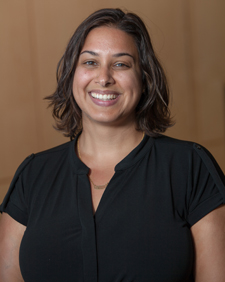

UMMS obstetrician Tara Kumaraswami, left, who prescribes Plan B One-Step emergency contraception to patients of all ages, applauds the latest FDA ruling to lower the minimum age for purchasing it over the counter.
As debate continues over how young is too young for over-the-counter access to emergency contraception, obstetrician Tara Kumaraswami, MD, applauds the U. S. Food and Drug Administration’s decision to make Plan B One-Step emergency contraception available to teens as young as 15. But she also believes age restrictions ought to be lifted overall.
“Research over the past several years has demonstrated both the safety and efficacy of Plan B for women of all ages,” said Dr. Kumaraswami, assistant clinical professor of obstetrics & gynecology at UMass Medical School. “I personally prescribe Plan B to my patients of all ages, knowing that age does not impact its safety.”
This week’s decision from the U. S. Food and Drug Administration calls for Plan B One-Step emergency contraception to be placed on pharmacy shelves next to other reproductive health products, and be sold to young women aged 15 and older with proof of age. That’s a change from the 2011 ruling by Secretary of Health & Human Services Kathleen Sebelius, which set 17 as the minimum age and kept Plan B locked behind the pharmacy counter.
Plan B One-Step works up to five days after intercourse by preventing fertilization of an egg, which does not take place immediately—not, as is widely and mistakenly believed, by preventing implantation of an already fertilized egg.
“By eliminating the need for young women to call their physician for a prescription and wait for a call back, resulting in lost hours or even days, the time delay is reduced, resulting in improved outcomes,” Kumaraswami said. “By lowering the age restriction from 17 years old to 15 years old the FDA supports the science that Plan B is safe and effective.”
She is not alone among physicians confronting unintended teenage pregnancy in supporting unrestricted access to Plan B, as the American Academy of Pediatrics did recently, and the American College of Obstetrics & Gynecology did over a decade ago, when it noted that emergency contraceptive pills meet all the customary criteria for over‐the‐counter use. It has low toxicity, no potential for overdose or addiction, no teratogenicity, no need for medical screening, self‐identification of the need, uniform dosage and no important drug interactions.
In contrast, Kumaraswami pointed out that no research has demonstrated an increase in sexual activity or decline in use of birth control when given access to emergency contraception, concurring with critics who have pegged the ongoing government wrangle as being more about politics than public health.
“As a health care provider I know my patients are doing their best to make responsible reproductive health choices,” said Kumaraswami. “But no form of birth control is 100 percent effective. By having the additional option of using Plan B, as well as taking steps to improve access, the FDA is enabling women to utilize preventive health care services.”
Related link on UMassMedNow: